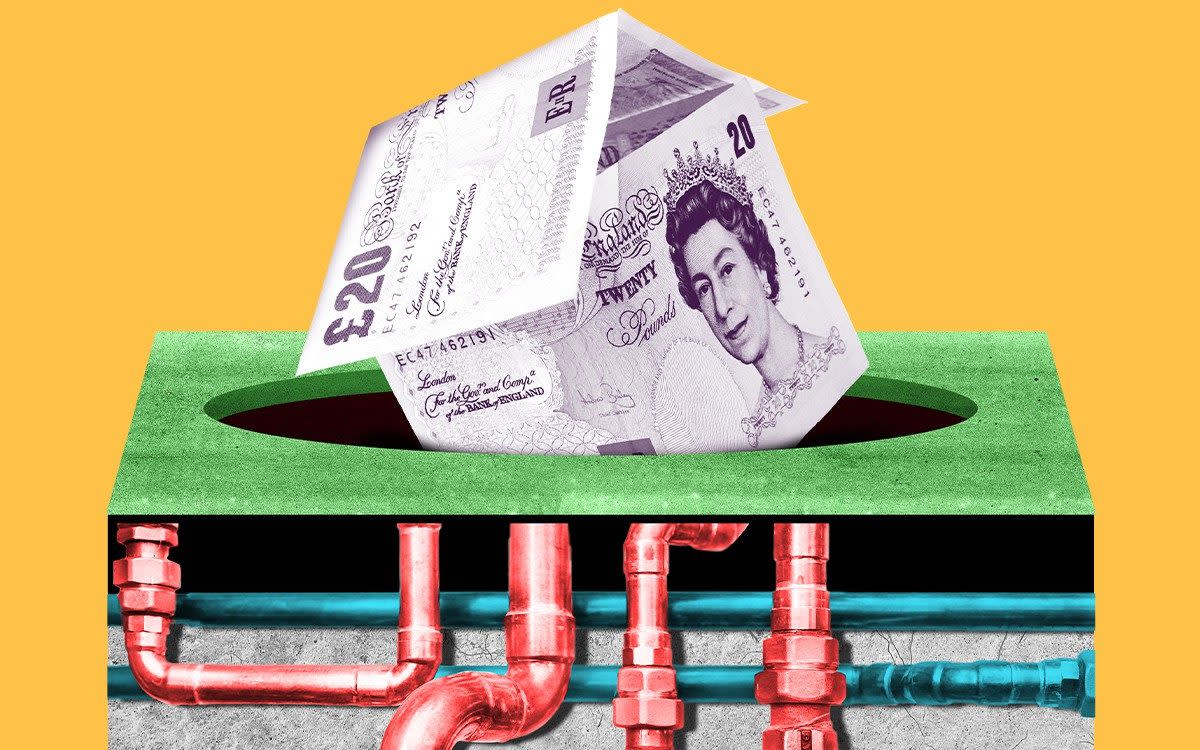Heat pump buyers in danger of being misled by net zero ‘greenwashing’

Households are at risk of being exploited in the Government’s net zero heat pump drive, the competitions watchdog has warned.
Some businesses selling green heating and insulation appear to be misleading people into buying their products, the Competition and Markets Authority (CMA) has said in a new report.
A lack of trustworthy information for households looking to install heat pumps or solar panels means they are vulnerable to being exploited or misled by businesses, it warned.
The Government wants heat pumps to be the main replacement for gas boilers in homes, which account for around 14 per cent of the UK’s emissions, as part of its net zero drive.
But a lack of “reliable, trusted and independent information” about how the emerging technology and the installation process work in the home means households could end up making bad investments.
It also said that claims about how much heat pumps can cut emissions and save households money on their bills may not be backed up by evidence, potentially misleading customers.
“While many businesses will be operating in the best interests of their customers, some businesses appear to be misleading people into buying their products,” said George Lusty, senior director for consumer protection at the Competition and Markets Authority.
“This needs to stop. We will now be exploring these concerns further – including whether to take enforcement action.”
Just under a fifth of the claims made on the websites of 1,100 businesses advertising heat pumps, solar panels and insulation were backed up by evidence.
These included claims that households could save up to £1,335 with an air source heat pump, or earn and save up to £38,000 from solar panels on their roof.
It warned that claims about the environmental and cost-saving benefits of these products are not always based on “real world” conditions - such as the weather or the size and condition of homes, which will reduce their efficiency and increase running costs.
Air source heat pumps typically cost between £3,000 and £10,000 to install. This includes upgrades to make homes more energy efficient and factors in government grants.
Running costs vary based on customer tariffs and energy use, but on average are around 10 per cent higher than bills for a gas boiler, according to the Climate Change Committee.
A survey from innovation charity Nesta this week found that 81 per cent of heat pump customers are happy with the new technology once it is installed.
The CMA also highlighted a greenwashing risk from boilers that are advertised as “hydrogen-ready”, which it said were misleading customers into thinking they were more environmentally friendly than other gas boilers.
The Government has yet not made any decision on using low-carbon hydrogen in the gas network, meaning hydrogen-ready boilers use the same polluting gas as other boilers.
The CMA warned of households being put off switching to green heating, or installing something that is too expensive or does not work as expected risks - undermining the Government’s net zero drive.
“We want people to have confidence when they buy green heating technologies and home insulation,” said Mr Lusty. “It’s essential they get what they paid for and that energy efficiency and sustainability claims are fair and accurate.”
In new guidance to consumers, it says “choosing the first product or business that you see advertised may not be the best idea”.
Responding to the report, Citizens Advice said consumer protections needed to be strengthened by law.
“The CMA has identified some of the difficulties people face when trying to make green changes to their home,” said Gillian Cooper, the organisation’s head of energy policy.
“However, without stronger protections and access to independent and unbiased advice, consumers remain at risk of being misled.
“More work is now needed to make sure consumers feel adequately supported - stronger protections should be put in law.”

 Yahoo News
Yahoo News 
